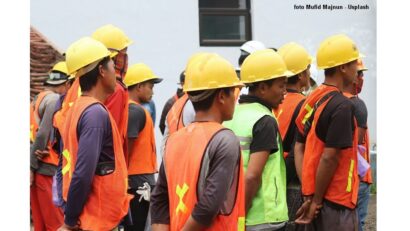New measures to target poverty
The Romanian government has recently initiated a public debate on its proposed package of 47 measures to eradicate poverty.

Christine Leșcu, 02.03.2016, 14:06
The Romanian government has recently initiated
a public debate on its proposed package of 47 measures to eradicate poverty.
Chiefly aimed at Romania’s 1.7 million minors at risk of poverty, the package
also targets other social categories as well, such as the elderly, in a move to
promote active aging. Prime minister Dacian Ciolos with details about the
anti-poverty programme:
We want to provide identification for all
newborn children, apart from support for medical screening and vaccination.
Some children are born into families who do not have an established place of
domicile so they cannot be provided with identity papers, thus being left out
of the support system. We need a solution for such cases. We also want to
reduce school dropout levels among school-age children. In the case of young
people who have abandoned school early and have little chances of finding a
job, the Employment Agency should have a more proactive approach and develop
assistance programmes meant to identify these cases and help the young people
in question integrate into the labour market or continue their education
through a programme called A Second Chance in School.
We often hear that Romania is one of
the poorest countries in the European Union, but what exactly is the scale of
poverty in this country? Monitorul Social, a project developed by the Friedrich
Ebert Romania Foundation, has been attempting to answer this question for a year.
It has collected and analysed social and economic data from various national
and European institutions, seeking to present and explain the results to the
public in a clear and accessible manner.
After looking at all the figures, it
was clear that some of them were misleading, says Victoria Stoiciu, a programme coordinator with the
Friedrich Ebert Foundation. She gave as an example the data indicating that
Romania has one of lowest unemployment rates in the European Union. The
official data regarding employment and unemployment rates and those concerning
self-employed people are, in fact, concealing a very tough reality. Victoria
Stoiciu explains:
Employment is defined in the European Union in
relation to people doing salaried or non-salaried work. The latter category
includes, for example, all types of self-employed occupations. According to
this definition, Romania has a decent employment rate at over 60%, which is
close to the EU average, yet not exactly meeting the target stipulated in the
European Union’s 2020 growth strategy. But if we look more closely at the
numbers, we see Romania has some 4.5 million salaried workers and 3 million people performing non-salaried work. In the latter category, half
are self-employed people. The rest, who are classified as non-salaried family workers,
work in their own households but do not have an income and do not get paid at
the end of the month. They are in effect unemployed. In statistical terms,
however, they are considered employed. 90% of all self-employed people in
Romania work in agriculture, which is in fact a type of subsistence work.
Salaried
workers are not doing much better, either, given that the gross minimum monthly
wage in Romania stands at 218 euros, the lowest in the European Union with the
exception of Bulgaria. At the end of 2015, the net average wage in Romania amounted to 473 euros. Furthermore, the so-called social transfers, namely
unemployment benefits, child allowances, pensions and welfare benefits, account
for a maximum of 16% of the GDP. While the European Union average in this
respect stands at more than 20%, Romania is again behind other member states,
with the lowest social protection expenditure in the Union.
Victoria
Stoiciu, a programme coordinator with the Friedrich Ebert Foundation, shares her view on the
government’s recent anti-poverty programme:
It
is a good package. There is nothing bad I can say about it. I should like to
make two observations, however. An anti-poverty strategy for the 2015-2020
period was already adopted at the beginning of 2015, a strategy I considered
OK. So I don’t understand why the current government didn’t continue what was
done in the past. The current government has not criticised the old strategy,
but it has still preferred to come up with a new one, which is also a good
strategy. Governments in Romania have this habit of erasing everything the
former governments did before them, so there is no continuity in terms of
public policies. Although there is nothing fundamentally wrong with
the new anti-poverty programme, we have to go to the root of the problem to
eradicate poverty. And the cause of the problem is the lack of jobs.
The new anti-poverty
package also comprises examples of best practice, pilot programmes run by
non-governmental organisations that have been included in the national
legislation. One such project, developed by the OvidiuRo Association, aims to keep children from
underprivileged families in primary school. Under the project, these families
receive a voucher worth a little over 10 euros to help with the costs
associated with keeping their children in primary school. The list of children
eligible for this programme was submitted by the local authorities by February 10. In the
meantime, the central authorities have begun to funnel the money to
the local budgets.






























